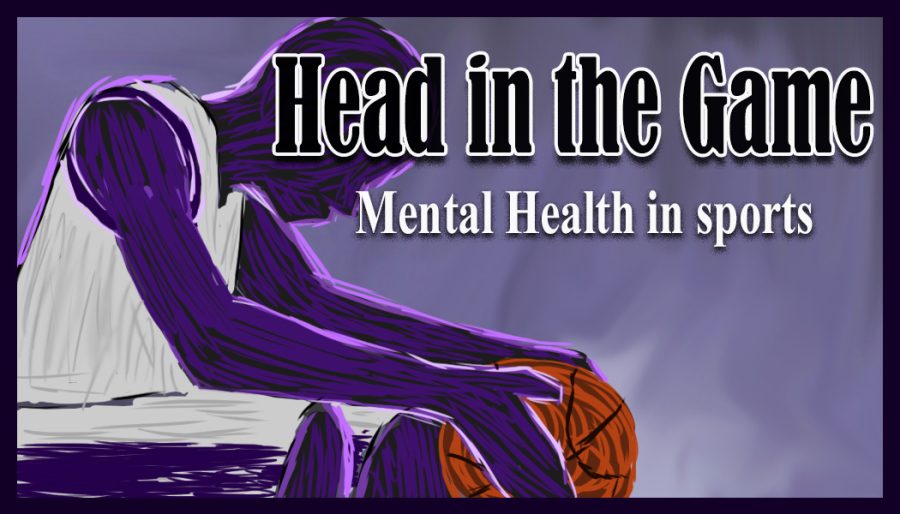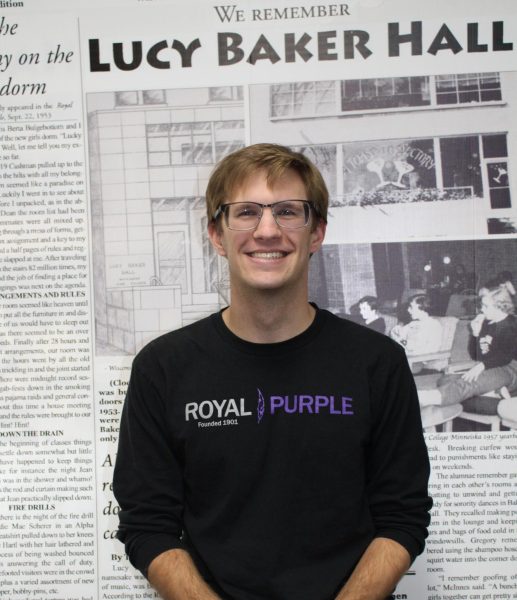Head in the game
February 6, 2023
Everyone knows what it’s like to go through a bad time, getting your head out of that slump can be tough. The mental part of athletics is a growing emphasis in today’s athletic world. For athletes at UW-Whitewater, with expectations for high quality performance, it can be a great challenge to live up to those standards. Luckily there is help to make your mind aid your body compete at those high levels.
Milwaukee Brewers sports psychologist Matt Krug talked to Warhawk student athletes Thursday, Jan. 2, about imagining the brain just as like the rest of the body. He helps athletes find a way to keep their brain where they can compete at their best.
“It’s a self awareness process of how your brain normally works, and then if it gets a little ahead of itself, how do you bring it back,” Krug said. “It’s really an identification process of your unique brain and how it works and choosing the skill that matches that best.”
Krug coming to speak is just one of the ways that Whitewater student athletes have been able to learn about and utilize mental skills.
Athletes in the Whitewater Track & Field program are fortunate to have two people on the coaching staff who are there to help them with the mental aspect of the game. Dr. Lindsey Greviskes, the team mental performance coach, and Dr. Logan Edwards, the team mental skills coach.
According to Greviskes, at the division one level athletic departments are required to have someone dedicated to mental help, at the division three level that isn’t the case due to budget issues.
Their line of work is to teach athletes ways of improving their physical performance through mental processes. In addition, they guide students to the right people who can help them in clinical or counseling services.
Helping train athletes through their minds is a growing part of athletics and Greviskes is as passionate about helping athletes as they are about competing. As this new emphasis grows she needs to get athletes to buy into the processes she teaches.
One strategy for doing this is having student athletes close their eyes and hold a string with a washer tied to the end and thinking about it moving. When they open their eyes they see the washer actually swinging. Greviskes says this is because just thinking about something makes your body do it.
“Your nerves are firing signals at the most minuscule levels, they’re not fully doing bicep curls if you’re thinking about doing bicep curls, but those nerves and pathways are firing a little bit,” Greviskes said.
Once athletes buy into the mental side of the game she can help them explore various ways to better their athletic performances via mental strategies. One of the greatest enemies in competition can be your very own mind, that’s why Greviskes focuses greatly on positivity and keeping your mind in a happy place.
“Tell yourself better stories. You’re talking in your head all the time, we’re not all crazy but we all talk to ourselves,” Greviskes said. “How do you get that voice to work for you and help build your confidence and reduce anxiety and tension? How do you make that work in your favor?”
Another major part of this is building an inner self confidence through positive self talk and through imagery of a successful competition. Reframing negative thoughts into positivity are shown to help athletes perform better.
When dealing with athletes who are recovering from injuries, particularly ones that have created a type of trauma and mental block, Greviskes likes to have athletes create keywords that can guide them slowly back into the process.
“Come up with keywords that are meaningful to you, it can be anything,” Greviskes said. “I’ve had athletes say ‘pepperoni’ because it’s their favorite pizza topping and they always eat it with their family and it brings them back to a place where they’re happy.”
Making sure athletes don’t feel isolated when injured is another mental challenge she helps athletes tackle. During the COVID-19 shutdown, she needed to help athletes with a different kind of isolation.
“If you are normally in a sport and exercising daily, and then suddenly everything is shut down and you’re on your own. That alone is going to impact your mental health,” Greviskes said.
During the shutdown student athletes attended virtual sessions to help navigate the time of turmoil. According to Greviskes she referred more people to counseling services during that time.
Joey Wenszell, a senior on the men’s swim and dive team, was someone who struggled with motivation during COVID. But beyond that, he is a believer in how massive the role the mind plays in competition.
“Swimming is such a mental sport. People say it’s more physical, but in my personal opinion it is 70 percent mental and 30 percent physical. If you can get past your mental block you can go as far as you want,” Wenszell said.
Greviskes, while agreeing on how major the mental aspect of the game is, divides up the physical versus mental a little differently.
“I argue it’s 100 and 100, why split it up? It’s 100 percent everything,” Greviskes said. “The mental side is an important piece of the game. Without that a wide receiver wouldn’t be able to know routes, a tennis player wouldn’t remember the score.”
No matter how you split it up, it’s clear that the mental side of the game is major and getting increasing attention. Training your body is important, but learning to train your brain can help you approach anything stressful in life.












